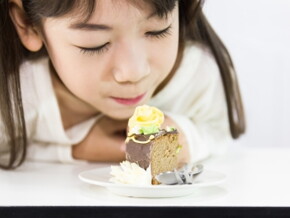
How to Enhance Your Child's Emotional Stability
Emotional Stability is vital for a child to succeed. Learn more about it through a family specialist.
Does your child know how to overcome fear on the first day of school? To manage anxiety during exams? To control anger when upset with playmates? Teaching your child to manage one’s emotions in times of stress or conflict is critical as this will also determine one’s emotional stability later on in life.
Dr. Joselyn Eusebio, an expert in developmental paediatrics, defines emotional stability as “the capacity to maintain one’s emotional balance under stressful circumstances.” It is the strength of a person’s emotions, the ability to handle difficulties in his/her life and to understand and have empathy for others. With strong emotional stability, children can mature with a happy outlook in life. They can also achieve more academic and professional success.
“If the child doesn't have emotional stability in the home, chances are that the child him/herself won't be emotionally stable,” says Dr. Eusebio. Emotionally unstable children are known to grow up with relationship issues, self-esteem problems, and higher tendencies to develop depression, jealousy and other negative emotions.
As such, it is every parent’s priority to help their children to manage their emotions, and keep these under control. Parents must also help their children develop the ability to feel intense emotions and understand the reason for emotions. You can achieve this by doing the following:
- Giving your kids lots of affection and verbal affirmation.
- Take time to make eye contact.
- Listen, discuss and teach your children about WHY they experience certain emotions.
- Understand for yourself why your children feel so passionate about that emotion.
Even at 5 years old, children can tell when their feelings are being taken into consideration. Most of the time, children just want to feel that their emotional state is being acknowledged.
Open communication with your children is also a window of opportunity to shape and mold a child’s character and emotional health. When they understand better why things are the way they are, they’re less likely to question them later on. And in return, they tend to act more logically, and emotionally about certain situations.
Set your child up for success and happiness in life, and help them gain the ability to be sensitive to feeling for others. While there is no right answer on how to properly raise emotionally healthy children, parents can follow these few tips to give them the best chance possible.
Reference
- Unknown. (n.d.). Emotional stability. Psychological Wiki. Retrieved April 25, 2014, from http://psychology.wikia.com/wiki/Emotional_stability
- Unknown. (n.d.). Why is emotional stability important for a child?. Wiki Answers.com. Retrieved April 25, 2014, from http://wiki.answers.com/Q/Why_is_emotional_stability_important_for_a_child
- Johnson, J. (n.d.). Helping YOU Achieve Excellence In Life. Retrieved April 25, 2014, from http://www.drjerm.com/
- Rendon, R. (January 29, 2006). Child's academic success tied to emotional stability. Houston Chronicle.
A Victim of Mom Shaming? How to Handle It With Class by Lei Dimarucut-Sison, Source: https://www.smartparenting.com.ph/parenting/real-parenting/how-to-handle-mom-shaming-with-class-a00061-20190524
5 Types of Mom-Shaming—and How to Shut Them Down by Charlotte Hilton Andersen, Source: https://www.rd.com/advice/parenting/mom-shaming




























